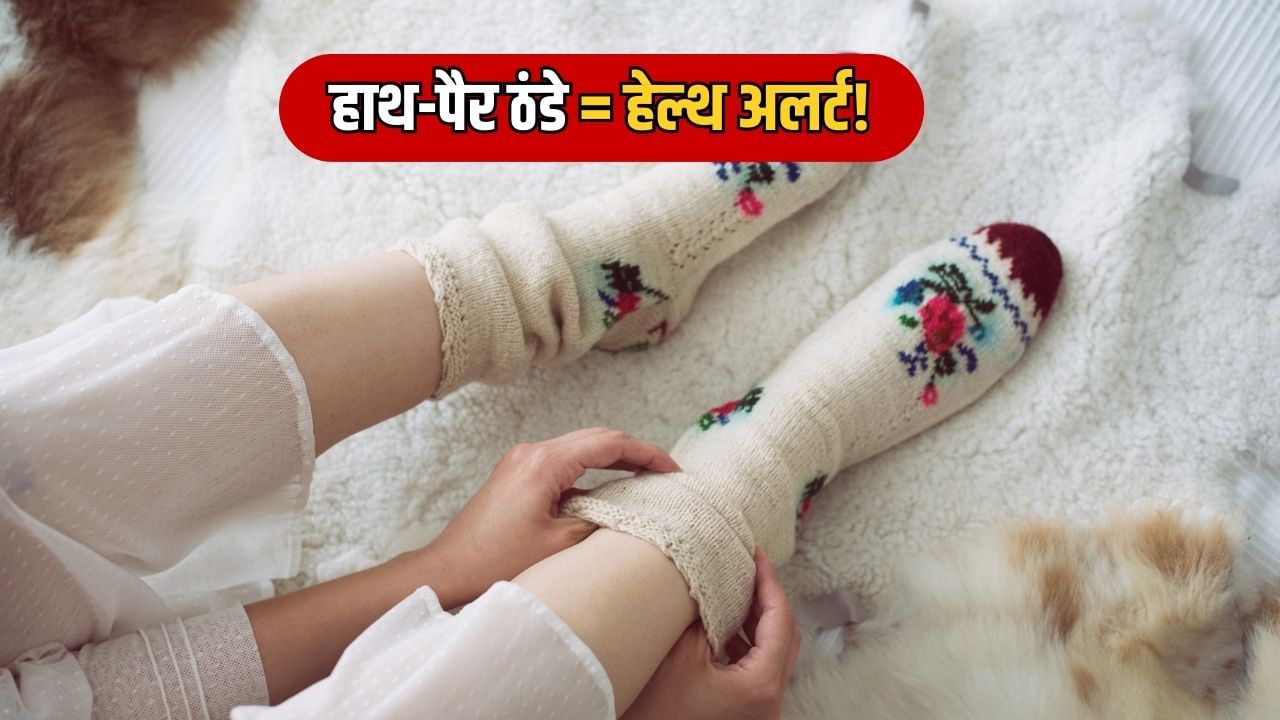Hands and legs are coldImage Credit Source: Emilija Manevska/Moment/Getty Images
Cold Hands and Feet Reasons : Often people complain that their hands and feet are always cold. Whether the weather is cold or hot, they feel cool in the palm and claws. Many times people ignore it, but can it be a sign of a disease?
Hands and feet are the biggest reason for staying cold (Poor blood circulation) in the body. When the blood from the heart does not reach the limbs well, the temperature of the hands and feet falls and they start to look cold. Sometimes it can also be normal, such as in very cold weather or after a long time sitting. But if this problem remains frequent or frequent then it is important to pay attention.
Which diseases can be pointed out?
Anemia (anemia)- If hemoglobin is low in the body, then oxygen does not reach the whole body properly. This keeps the hands and feet cold.
Thyroid problem- When the hypothyroidism (thyroid is less work), the metabolism of the body slows down and the hands and feet become cold.
Sugar (Diabetes)- Diabetes can damage the veins, which affects blood flow in the feet and hands.
Low blood pressure or heart problem- If the heart does not do it properly or the blood pressure is very low, then the hands and feet can also be cold.
Raynauds Disease-This is a special condition in which the blood vessels of fingers of hands and feet shrink due to cold or stress. This makes the fingers first white, then blue and later red.
More reasons- Sometimes this problem can also occur due to lack of nutrition, smoking, stress, dehydration or sitting for a long time.
When to be cautious?
If the hands and feet are always cold and these symptoms are also there, then you should see a doctor immediately, such as being numb or changing the skin color (white/blue/red). The wound or cut is not healing quickly, too much fatigue or dizziness or continuous weight loss.
What to do to avoid this?
Avoid cold and wear warm clothes.
Do regular exercise so that blood circulation is better.
Keep distance from smoking and alcohol.
Eat a balanced diet, especially food rich in iron, vitamin B12 and folic acid.
If the problem persists, then get a doctor checked.
